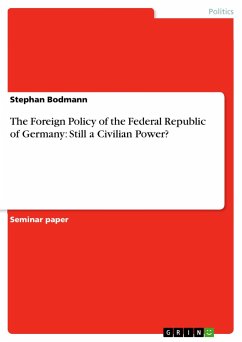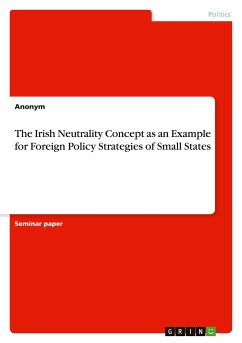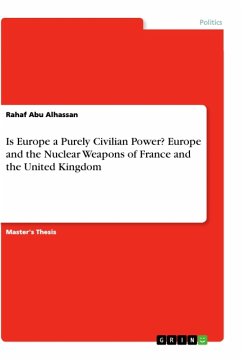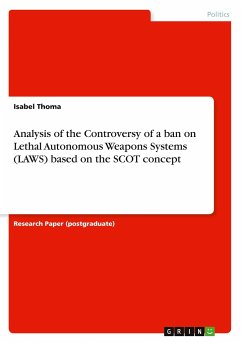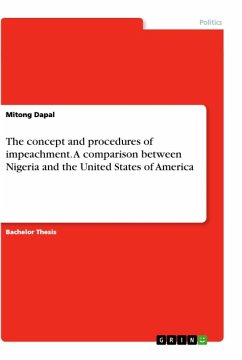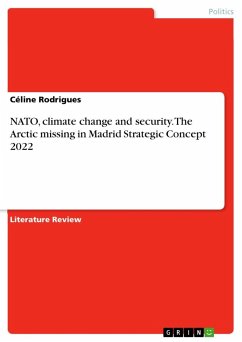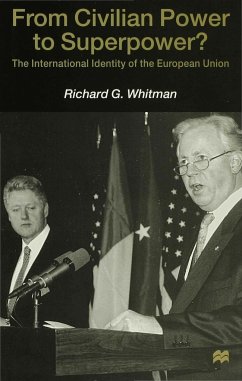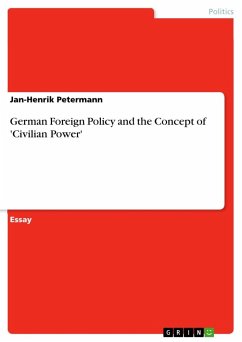
German Foreign Policy and the Concept of 'Civilian Power'

PAYBACK Punkte
0 °P sammeln!
Essay from the year 2006 in the subject Politics - Topic: German Foreign Policy, London School of Economics (Department of International Relations), language: English, abstract: The end of the Cold War in 1989/90 did not only prompt a fundamental transformation of the international system as a whole; it equally changed the expectations and perceptions of key nation-states acting within that system. This was, as most scholars of International Relations (IR) agree, especially true with regard to reunited Germany. In the run-up to the negotiations of the 'Two-plus-Four Treaty', many observers fea...
Essay from the year 2006 in the subject Politics - Topic: German Foreign Policy, London School of Economics (Department of International Relations), language: English, abstract: The end of the Cold War in 1989/90 did not only prompt a fundamental transformation of the international system as a whole; it equally changed the expectations and perceptions of key nation-states acting within that system. This was, as most scholars of International Relations (IR) agree, especially true with regard to reunited Germany. In the run-up to the negotiations of the 'Two-plus-Four Treaty', many observers feared that the demise of the East-West confrontation might encourage the Federal Republic to completely strip off its post-war restraints and use its revamped resources and autonomy more forcefully.By the same token, some European leaders - notably French President François Mitterrand and British Prime Minister Margaret Thatcher - voiced concerns that a resurgence of German power politics seemed far from being just a theoretical possibility. Indeed, some indications of a renewed German propensity to 'go it alone' emerged even before the legal and political terms of unification had been clarified. Chancellor Kohl's '10 Points Plan' of November 1989 aroused deep scepticism. Even more alarmingly, German contributions to armed operations in Bosnia and Kosovo were perceived as incidents of a much more self-cofident security posture.However, a vast majority of German politicians was eager to defuse their neighbours' suspicions, emphasising that they would retain their commitment to a culture of 'civilian power.' The country would remain a driving force for deeper and wider European integration as well as multilateralism within the frameworks of the UN, NATO and CSCE/OSCE. Yet, despite these efforts to address other states' concerns, some observers doubted whether Germany would actually be willing and able to stick to its 'leadership avoidance reflex' in the future.Almost twodecades after reunification, it might thus be worthwhile to ask: is Germany still a 'civilian power'? To answer this question, I will first describe different dimensions of political power as they are treated in IR theory and illustrate what 'civilian power' means in this context. Secondly, I will outline in how far particular concepts of foreign policy (FP) behaviour - the models of 'security', 'trading' and 'civilian states' - are capable of grasping the notion of civilian power. Section 4 relates these conceptual frameworks to important features of Germany's actual FP conduct before and after the watershed events of 1989/90.




